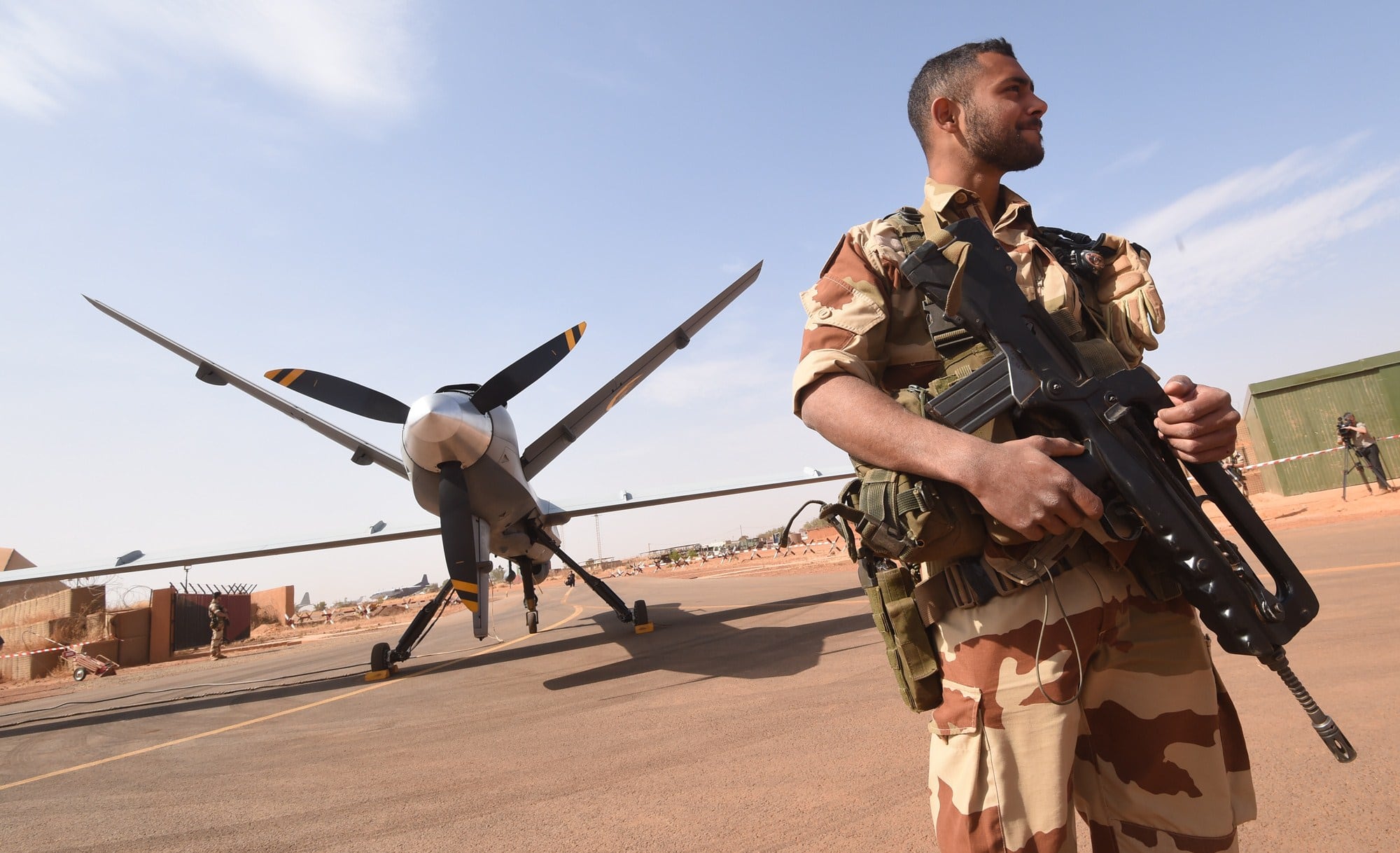PARIS ― Electoral uncertainty and hard times for oil producers led to a halving of French arms exports last year, the annual government report to parliament showed July 4.
France won in 2017 orders for arms exports worth €6.9 billion (U.S. $8 billion), half the €14 billion booked in the previous year, the report on foreign weapon sales said.
That sharp drop in foreign weapon sales reflected “greater constraints” in 2017, notably nations waiting to see the outcome of the French elections and an economic slowdown among most oil producers, the report said. The latter led many hydrocarbon-rich countries to postpone some arms deals.
The big drop in 2017 followed two buoyant years due to export contracts for the Dassault Rafale fighter jet, with 2015 hitting a record high of €16.9 billion.
France sold some major arms packages last year, but those contracts will not go into effect until 2018, including Qatar exercising an option for a further 12 Rafale fighters, the report said.
RELATED

Qatar previously took some eight months to raise a commercial bank loan to pay a 15 percent down payment for its 2015 order for 24 Rafale fighters and missiles worth €6.3 billion.
The total of last year’s deals match the average value booked in previous years before the spike in 2015 and 2016, the report said.
Sales in the Middle East accounted for just over 60 percent of the total value last year, reflecting close French ties to the region and “the struggle of several nations against terrorism,” the report said.
The Asia-Pacific region accounted for some 17 percent of sales, followed by Europe and “the American continent.”
“This export strategy, in close ties with foreign policy, defense and security of France, is conducted with the strict respect of French commitment to international agreements, and governed by a very strict control of exports,” the report said.
Helicopters and missiles, with a strong naval focus for the latter, accounted for more than half the amount recorded last year.
Most of the contracts were worth less than €200 million, a market segment which is fairly stable despite stiff competition, particularly from emerging export nations offering “low-cost” deals, the report said. Sales in that segment accounted for €4.1 billion of the total annual amount.
Besides access to Western technology, “a French solution presents a real autonomy in use,” the report said.
Key elements in winning contracts are the transfer of technology and offset deals with local industrial partners, the report said. The sale of submarines to Australia and Rafale to India are major examples.
A sustained export drive has led to an “internationalization,” with French companies setting up subsidiaries and seeking local partners abroad, not just a simple sales drive, said Hélène Masson, senior research fellow at the think tank Fondation pour la Recherche Stratégique.
“The French defense technological and industrial base seeks exports to compensate for a drop in French and European orders, accelerating after 2010,” she said.
That has led to a structural shift in companies’ internal organization, international presence and product portfolio. Companies’ relations with suppliers and industrial partnerships have also changed.
Client nations calling for local investment through direct offset deals is the key factor, speeding the transformation, she said. French intermediate, medium and small enterprises must deal with complex financial, legal and commercial issues.
France went to the polls last year to elect a new president, Emmanuel Macron, and a new lower house National Assembly.








